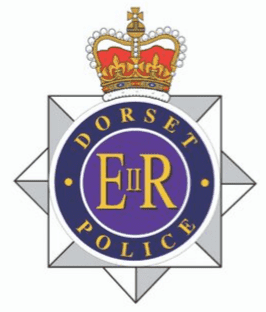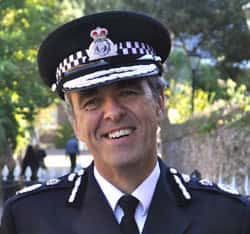© Police Now . Police Now is a registered charity (1168427) in England & Wales
All information you provide as part of this process remains strictly confidential.
Vetting is the process by where you disclose any information that may affect your suitability to become a police officer. It is essential to provide thorough and precise information, as this will then be reviewed by the force you are applying to. Failure to disclose something during this process may result in a vetting failure, and you not being able to join the police, on the grounds of honesty and integrity.
To understand the vetting process and decision making that you will apply to you, we recommend that you familiarise yourself with the Vetting Code of Practice for all police forces in England and Wales.
Vetting exists to make sure that those joining and choosing a career as a police officer understand the values and public expectations of policing. It is to ensure that your integrity as you enter policing, and when you are in service, is not called into question.
Vetting will be reviewed at regular points in your career.
Our recruitment officers are here to support you through the vetting process and answer any questions. They may ask you to clarify information you have provided or request additional information.
If there are any changes in your personal circumstances related to information provided as part of the vetting process, it is your responsibility to highlight these to the force you have applied to and your recruitment officer as soon as possible.
Vetting guidelines are set by the College of Policing. Police Now cannot influence the guidance or decision-making of the force you are applying to.
We ask that you are open and honest and declare all investigations, cautions, convictions or interactions with the police, no matter when these took place or how significant they were. Misleading, incomplete or inaccurate information could result in you not being able to join the programme.
To start initial training, all vetting must be completed.
Here are some examples of common scenarios that need declaration:
If in doubt, disclose.
If you are not sure how much detail to provide, then more is always preferable. Common mistakes include not providing enough detail or failing to declare something. This can cause delays and prevent you from joining the programme in time.
If you have any doubts about the relevance of a conviction or caution, include the details anyway, as it important for you to demonstrate honesty throughout the vetting process.
All applicants must complete vetting prior to joining a force, to identify whether they are suitable to become a police officer. The vetting process includes disclosing information about your friends and family, to ensure that you aren’t vulnerable to extortion or blackmail.
You’ll be asked to provide information on:
Vetting also includes:
You will either be sent your vetting form by your allocated force or given access to your vetting form via your onboarding platform. This process won’t start until you’ve accepted a conditional offer with Police Now for one of our programmes. You should complete your vetting form at the earliest opportunity.
To prepare, you should start gathering information in advance so, you can complete the vetting form as soon as you receive it, including:
If your vetting clearance is declined or withdrawn, you will not be able to join the programme.
You can appeal a vetting decision, please refer to the Vetting Code of Practice for more information.
National Detective Programme, Counter Terrorism
Vetting is the process where you disclose any information that may affect your suitability to become a police officer. It is important to give full and accurate information.
Firstly, you will undergo Recruitment Vetting (RV) and Counter Terrorism Checks (CTC). These are required to start the programme. Once you have started at the Police Now Academy you will begin your advanced vetting, known as Developed Vetting (or DV), which is the highest level of government security clearance. Additionally, in your role you will have access to the most sensitive intelligence which must be restricted to UK nationals. In approved circumstances, dual nationals (of which one element is British) may also be granted access.
Before you start your first day at the academy you will need to complete the vetting checks required to join the programme (Recruitment Vetting, or RV, and Counter Terrorism Checks, or CTC). Once you have joined you will begin completion of the advanced vetting (Developed Vetting, or DV).
During advanced vetting checks, you’ll be asked about your family, partner, lifestyle, and finances. You’ll have a confidential interview with a vetting officer who will ask questions about all areas of your life. This will include some uncomfortable and intrusive questions about your sexual history, drug and alcohol use and watching pornography.
Your vetting officer is a professional and will not discuss your interview with anyone else. They are not there to make moral judgements of you and there are no right or wrong answers. You can ask at any time why you are being asked a question. If you would prefer an interviewer of the same ethnic background, religion or gender you can ask the vetting team to arrange this.
Additionally, in your role you will have access to the most sensitive intelligence which must be restricted to UK nationals. In approved circumstances, dual nationals (of which one element is British) may also be granted access.
We will be there to provide information and guidance to support you through the vetting process.
We expect the vast majority of those who have passed the first stage of vetting will pass the additional checks too. If you don’t pass the vetting requirements to be eligible to work in Counter Terrorism you will remain on the National Detective Programme but continue your second year on the programme working on serious crime without a counter-terrorism element.
You must declare all convictions for past offences, formal cautions (including as a juvenile) and any bind-over imposed by the courts. Some applicants don’t declare information they believe is no longer held on record. Others do not declare information because they believe it is no longer relevant. However, vetting enquiries will reveal incidents from long ago and failure to disclose these will lead to your application being rejected.
If you have a criminal record, this doesn’t mean you won’t be considered.
These are the factors that will be taken into account:
Your application will automatically be rejected if you have been cautioned, or convicted, for serious offences which include:
Your application may still be considered if you have been convicted for a minor motoring offence, unless there is a clear pattern of repeat behaviour. This will be reviewed on a case-by-case basis. Your application will automatically be rejected for the following motoring offences:
Your application will automatically be postponed if you have any outstanding charges or court summons which can result in a conviction. It will only be considered once the outcome of the case is known.
You must declare all cautions, convictions and investigations linked to your friends and family. This will be reviewed on a case-by-case basis and does not necessarily hinder your application.
The following factors will be considered:
Here is a checklist of some of the things that you will need to remember when completing your vetting application. Not all will apply to you.
TOP TIP
To avoid delays, check your inbox and junk folder regularly to ensure you are not missing any communications related to your vetting application.
Do you have questions about applying? From choosing a programme to checking your eligibility.
Our recruitment team are here to advise and support you during the application process.
Join our mailing list to keep updated on career opportunities, Police Now insights and news.
Access top tips and guidance on the application process for our national graduate programmes.
© Police Now . Police Now is a registered charity (1168427) in England & Wales


| Cohorts: | 2015 | 2016 | 2017 | 2018 | 2019 | 2020 |
|---|---|---|---|---|---|---|
| No. of police officers enrolled: | — | — | — | 6 | — | — |
| Cohorts: | —— | —— | —— | —— | 2019 | 2020 |
|---|---|---|---|---|---|---|
| No. of police officers enrolled: | — | — | — | — | — | — |
Visit the Dorset Police website www.dorset.police.uk


| Cohorts: | 2015 | 2016 | 2017 | 2018 | 2019 | 2020 |
|---|---|---|---|---|---|---|
| No. of police officers enrolled: | — | — | — | 8 | — | — |
| Cohorts: | —— | —— | —— | —— | 2019 | 2020 |
|---|---|---|---|---|---|---|
| No. of police officers enrolled: | — | — | — | — | — | — |
Visit the Devon & Cornwall Police website www.devon-cornwall.police.uk